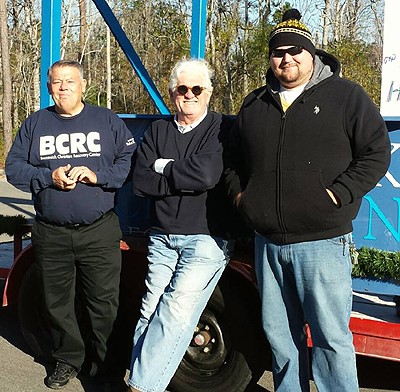Amytal Addiction Center Hurst TX
Home
Top Amytal Addiction Center Hurst TX Resources and Information Online
Amytal Addiction Center Hurst TX
Drug Enforcement Administration seized a ship carrying more than 42,800 pounds of cocaine. While your genes, mental health, family and social environment all play a role, risk factors that increase your vulnerability include: Family history of addiction Abuse, neglect, or other traumatic experiences Mental disorders such as depression and anxiety Early use of drugs Method of administration—smoking or injecting a drug may increase its addictive potential Drug addiction and the brain While each drug produces different physical effects, all abused substances share one thing in common: repeated use can alter the way the brain functions.
United States Canada With Drug Rehab Centerilitation programs, the type of intervention involves bringing in the Christian principles as part of the treatment process. For legal drugs such as alcohol, complete abstention—rather than attempts at moderation, which may lead to relapse—is also emphasized ("One is too many, and a thousand is never enough.") Whether moderation is achievable by those with a history of abuse remains a controversial point, but is generally considered unsustainable.[2] Types of treatment[edit] The brain’s chemical structure is impacted by drugs of abuse and these changes are present long after an individual stops using, This change in brain structure increases risk for relapse, making treatment an important part of the rehabilitation process.[3] Various types of programs offer help in drug rehabilitation, including: residential treatment (in-patient/ out-patient), local support groups, extended care centers, recovery or sober houses, addiction counselling, mental health, and medical care. If this individual is able to employ successful coping strategies, such as distracting himself from his cravings by turning on his favorite music, then he will avoid the relapse risk (PATH 1) and heighten his efficacy for future abstinence.
Right here are Some Even more Resources on Butalbital Addiction Detox Clinics

Here are Some More Details on Methadrine Rehab Near Me Hurst TX
The psychological aspect of addiction MUST be treated professionally in order for recovery to be maintained a day at a time. However, more often than not it is better to get an addict far from their drug-using environment upon entering detox or treatment, therefore a Drug Rehab Center in Texas may not be idea.
Below are Some Even more Resources on Butalbital Addiction Detox Clinics
Behavioral therapies help a patient with drug addiction understand his/her chronic condition, its health effects and effective treatment. You’re going to need all the strength you can get as you fight against your addiction. That says it all, when our way does not work, we need to ask for knowledge and guidance. Here are the 12 steps as used by Christian addiction treatment centers: Admit he/she has no power over his addiction and their life is unmanageable. Addicts can be more manipulative and cunning in their drug seeking behavior than you would like to believe your child capable of. We will devise a treatment plan that will take into consideration the patient’s treatment needs first and foremost, the budget available, location and personal preferences. Forgiveness and understanding and love are necessary.
Extra Resources For Methadrine Rehab Near Me Hurst TX
We understand that opening up about your substance abuse addiction can be uncomfortable. Avoid emotional appeals that may only increase feelings of guilt and the compulsion to use drugs. Among adults in the United States, just over two and a half percent admit to recent cocaine abuse. If you know that your drug or alcohol use has gone too far and you would like a helping hand, then it is simple; don’t wait any longer. 1-800-WORKPLACE (967-5752) – Drug-Free Workplace Drug-free workplace are comprehensive programs run by SAMHSA that mainly focus on preventing the use of illicit street drugs. We are here to ensure that you or your loved one access the best treatment possible and the treatment that is most likely to free you or your loved one from their particular addiction on a permanent basis. It is this obsession and compulsion that takes many drug addicts to their death. The food and housing are included in the cost of the rehabilitation program; however, much varies depending on the price of the program. In addition to assisting with finding treatment facilities, calling our non-profit hotline immediately connects you with someone who understands what you or your loved one is going through and who can help you understand the rehab process Help is available and is only a call away. Additionally, you’ll learn to deal with cravings and identify your individual triggers. If you recognize yourself in the following signs and symptoms of substance abuse and addiction, talk to someone about your drug use. Family members and friends of addicts can also call an addiction hotline to seek guidance on how to help their loved ones.
Click Here for More Information
Previous Next
You may also like:
Flunitrazepam Abuse Center Pender NE
Methadrine Detox Treatment Center Phelps KY
Molly Addiction Detox Clinics Jarrell TX
Addiction And Recovery Websites North Waterboro ME
Metadate Abuse Centers South Wayne WI
Mushrooms Addiction Treatment Clinic Rollinsford NH
Norco Addiction Rehab Jackson OH
Chlordiazepoxide Addiction Treatment Facility South Range WI
Diazepam Rehab Program Ridgeland MS
Morphine Abuse Program Unionville PA
Fentanyl Rehab Treatment Program Harrison TN
Secobarbital Addiction Treatment Clinic Cedar Springs GA
Valium Addiction Rehab Facility Ada OK
Luminal Detox Treatment Programs Sun Prairie WI
Vicoprofen Abuse Program Wells River VT
Actiq Abuse Treatment Program Wisdom MT
Steroids Rehab Treatment Programs Wade NC
Amphetamines Abuse Clinic Alma WV
How Does Outpatient Drug Rehab Work Gober TX
Suboxone Detox Clinics Lidgerwood ND